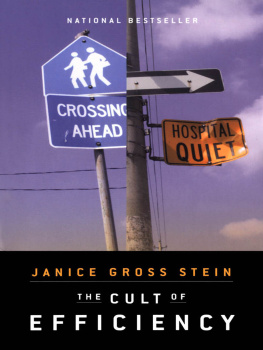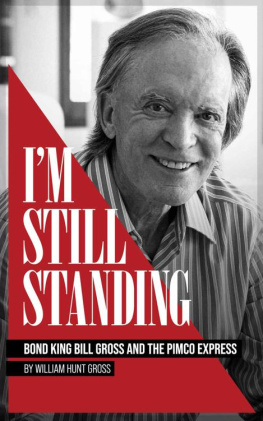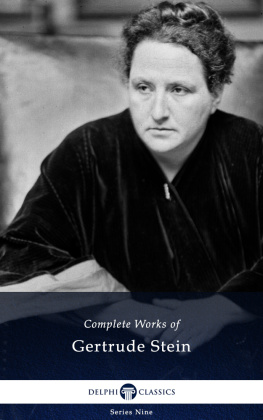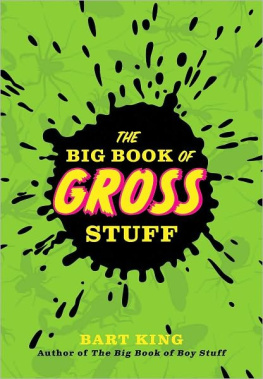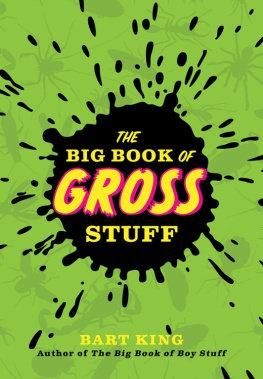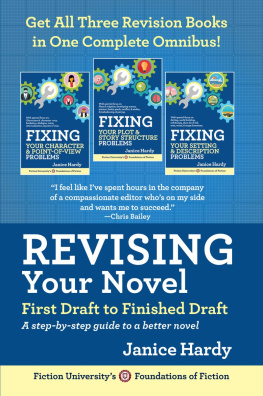The Massey Lectures Series
The Massey Lectures are co-sponsored by CBC Radio, House of Anansi Press, and Massey College, in the University of Toronto. The series was created in honour of the Right Honourable Vincent Massey, former governor general of Canada, and was inaugurated in 1961 to enable distinguished authorities to communicate the results of original study on subjects of contemporary interest.
This book comprises the 2001 Massey Lectures, The Cult of Efficiency, broadcast in November 2001 as part of CBC Radios Ideas series. The producer of the series was Philip Coulter; the executive producer was Bernie Lucht.
Janice Gross Stein
Janice Gross Stein is the Harrowston Professor of Conflict Management in the Department of Political Science and the director of the Munk Centre for International Studies at the University of Toronto. She holds the rank of University Professor and is a Fellow of the Royal Society of Canada. She is the author of more than eighty books and articles and the winner of the Edgar Furniss Prize for outstanding contribution to the study of international security and civil-military education. She served as the chair of the Research Advisory Board to the Minister of Foreign Affairs and is currently a member of the International Security Committee of the American Academy of Science and the Committee on International Conflict Resolution of the National Academy of Sciences. She is the mother of two sons and lives in Toronto.
A LSO AUTHORED OR CO-AUTHORED BY J ANICE G ROSS S TEIN
Rational Decision Making: Israels Security Choices, 1967
Psychology and Deterrence
Peacemaking in the Middle East: Problems and Prospects
Choosing to Cooperate: How States Avoid Loss
Getting to the Table
We All Lost the Cold War
Powder Keg in the Gulf: Security in the Middle East
Networks of Knowledge: Collaborative Innovation in International Learning
Street Protests and Fantasy Parks: Globalization, Culture, and Society
JANICE GROSS STEIN
THE CULT OF
EFFICIENCY
Copyright 2001 by Janice Gross Stein and
the Canadian Broadcasting Corporation
Chapter VI copyright 2002 by Janice Gross Stein and
the Canadian Broadcasting Corporation
All rights reserved. No part of this publication may be reproduced
or transmitted in any form or by any means, electronic or mechanical, including
photocopying, recording, or any information storage and retrieval system,
without permission in writing from the publisher.
First edition published by House of Anansi Press Limited in 2001
Revised edition published in Canada and the United States in 2002 by
House of Anansi Press Limited
895 Don Mills Road, 400-2 Park Centre, Toronto, ON M 3 C 1 W 3
Tel. 416-445-3333 Fax 416-445-5967
PMB 128,4500 Witmer Estates, Niagara Falls, New York 14305-1386
www.anansi.ca
To order Anansi books please contact General Distribution Services
In Canada Tel. 416-213-1919 Fax 416-213-1917
Email cservice@genpub.com
In the United States Toll-free tel. 1-800-805-1083 Toll-free fax 1-800-481-6207
Email gdsinc@genpub.com
CBC logo used by permission
06 05 04 03 02 1 2 3 4 5
NATIONAL LIBRARY OF CANADA CANADIAN CATALOGUING IN PUBLICATION DATA
Stein, Janice
The cult of efficiency
Rev. ed.
(CBC Massey lectures series)
Includes index.
ISBN 0-88784-678-5
1. Political obligation. 2. Political participation. 3. Educational accountability.
4. Public health administration. 5. Responsibility.
I. Title. II. Series.
JC329.5.S74 2002 361.613 C2002-900691-0
Cover design: Bill Douglas @ The Bang
Typesetting: Brian Panhuyzen
Printed and bound in Canada
| We acknowledge for their financial support of our publishing program the Canada Council for the Arts, the Ontario Arts Council, and the Government of Canada through the Book Publishing Industry Development Program (BPIDP). |
To my younger sister, Susan,
who taught me early in life that it is better to search
for the hard question than accept the easy answer
PREFACE
T HIS IS A BOOK ABOUT post-industrial society in the making: the way we organize our lives, what we fear and what we treasure, and how we see the state have altered over the last few decades. I am especially interested in the way we come together in public space and in the language that we use to speak to one another about issues of common concern. My ear has caught more and more public talk about efficiency, accountability, and choice, and less and less about equity and justice. As I have listened, I have often been puzzled. I have also been troubled. How does our public conversation shape the way we as citizens think about our most important shared values? What consequences does it have for the way we construct democratic processes in post-industrial society? A small puzzle has broadened into very large questions.
The Massey Lectures have given me the opportunity to reflect on these questions and to peel away the layers of our public conversation. I began to visit public schools and hospitals to understand how these arguments about efficiency, accountability, and choice come to life in our shared experience as citizens. Public education and health care are among the most basic public goods of concern to citizens everywhere. They matter to me as an individual: my life has been touched by my childrens schools and by the health-care system I have turned to at times of greatest personal need. They matter to me not only as an individual, but as a citizen and as a member of the wider community. I use these very local questions as a lens to explore the role of states and markets and the dilemmas of citizenship in post-industrial society.
I could have chosen to listen to conversations about other public goods that we collectively cherish. Our public discussions about water, about the environment, about culture, and even about security raise the same kinds of dilemmas. As I was finishing these lectures, the brutal attacks of terror against New York and Washington created a new sense of vulnerability in North America. Perhaps our sense of vulnerability comes in part from our recognition of how these attacks were carried out: they were perpetrated by a network, the defining form of social organization in the post-industrial age. The new vulnerability that we feel, so familiar to people in many other parts of the world, has pushed to the forefront an ongoing discussion about state and society, about rights and values. We are drawn into a conversation about ourselves and our possibilities, our societies and our commitments. Although the context and the scale are so dramatically different, talk in school corridors and hospital waiting rooms leads us to the same place. It takes us to the deepest and most intractable value conflicts that we face collectively, and to the ways we live with these conflicts in post-industrial society.
Writing these lectures was a voyage of discovery for me, and many people were guides along the way. When Richard Handler, then the executive producer of



